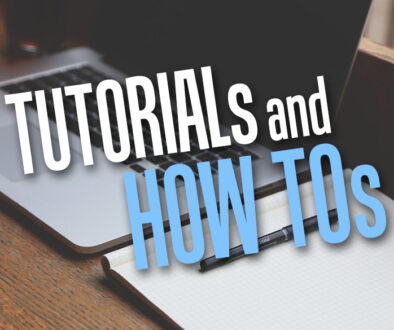Stay Ahead of the Game
Working with a limited ICT budget? Get your priorities right and stay ahead of the game. Schools often find that there is hardly any monies allocated for ICT development typically in acquiring new equipment or replacement hardware. This doesn’t mean that you cannot make the most of your existing infrastructure and equipment. With the right planning and development framework, schools can make the most of a small budget. Here are some pointers that will help you…
1. Desktops or laptops older than 3 years will need memory upgrades. Typically these are Pentium 4 or Celeron processor based machines that are struggling with 256MB or 512MB of physical memory. These systems will also be running Windows XP Professional and upon boot up, after loading all the driver software and installed application startup, the system would have already taken up over 200MB of physical memory sometimes even more than 256MB leaving no additional physical memory for user application. Take simple steps to remove application that starts up automatically when Windows boot up. You can either disable this function in the settings or remove applications shortcut from startup folder. You will also find that some drivers such as sound, display and touchpad starts taskbar shortcuts and software that you don’t really need. These can also be disabled from the settings of the application. Do this and you will free up some of those precious MegaByte of memory.
2. When you are running low on memory, the operating system will start to write information to the hard drive in what it calls a Paging file. Paging file is sometimes known as virtual memory as it extend the system memory beyond the physical memory. Background application will have its data moved to the Paging file while user application will occupy the system memory. This mode of working is really slow as often when user starts more than one application, the operating system will move data to and back from the paging file depending on the amount of memory available and memory used. Seeking, reading and writing data on the hard disk is also slower than compared to the physical memory. Upgrading the physical memory is not expensive is often the best way to increase the speed of these machines. We recommend up to 2GB for Windows XP and 3GB or more for Windows Vista and Windows 7. Without upgrading the operating system or adding newer applications, such an upgrade will add 2-3 years life towards the use of the system.
3. It is often a very costly affair to replace projector lamps. Considering the age of some of the projectors in schools, it may be worth considering a replacement projector instead. You can now find offers from certain manufacturers of projector that not only provide you with a warranty for the projector but also the lamp for up to three years. And you will also be surprised that these projectors don’t cost much more than a replacement lamp. Let’s say 2 years, 11 months and 29 days from now, your projector or lamp decides to pack it, you will be glad you had that warranty.
4. On the subject of replacing projectors, you will also find that some of the Interactive Whiteboards introduced in the early stages of the “Interactive Whiteboard in Every Classroom” scheme would have seen better days. Should you be looking to replace these whiteboards? Think about how the teachers are using them in the classroom. Do they still need to write on them? Given the years of exposure to ICT, there should be sufficient interactive contents and readily available software they they can use to simply project on the screen and have the students use a portable writing tablet to interact with this. Again, a potential cost saving here.
5. Whiteboard Alternatives. However, if you really have to replace an Interactive Whiteboard, we would recommend a Whiteboard frame that goes over an LCD panel. You will find that with these setups, there is no lamp to replace, no short throw arms to deal with especially with height adjustable whiteboards. Furthermore, no shadow casting on the board getting in the way of writing or staring at the blinding and potentially harmful projector lamp. A decent LCD screen and Interactive Whiteboard Overlay combination doesn’t cost any more than a typical Interactive Whiteboard with short throw projector.
Xelium welcomes any ideas from our schools, governors and parents. Please post your comments here and check back soon for more exciting ways to help make the most of your school’s ICT budget.
Author: Samuel J. Tan
Copyright © Xelium Ltd. All Rights Reserved. This article cannot be used in part or whole without expressed permission or license from Xelium Ltd. The author of this work and Xelium Ltd reserves all rights to the content of this website as the original creator and owner.


Teacher and Student Software Toolkit « XELIUM : clarity defined
21 January 2011 @ 11:00 am
[…] Staying ahead of the game – working with small ICT budget […]
Budget Cuts Does Not Mean Cutting Corners « XELIUM : clarity defined
24 January 2011 @ 8:00 am
[…] Staying Ahead of the Game: Working with Small ICT Budget […]